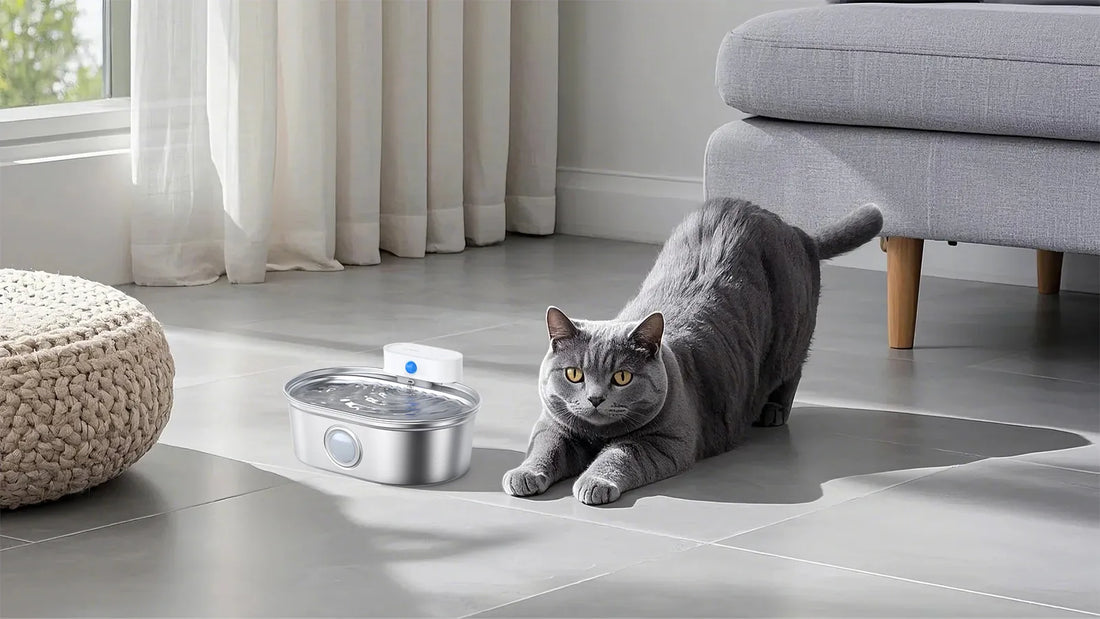If your cat will not drink water, it can be a cause for concern. Proper hydration is essential for your feline's health, and understanding the reasons behind this behavior is the first step to addressing it. This article explores the potential causes, offers practical solutions, and provides tips to encourage your cat to drink more water.
Why Hydration is Crucial for Cats
Water is vital for all living beings, and cats are no exception. It helps regulate body temperature, aids digestion, and supports kidney function. Dehydration in cats can lead to serious health issues, including urinary tract infections and kidney disease. Ensuring your cat stays hydrated is a key part of responsible pet ownership.
Common Reasons Why a Cat Will Not Drink Water
There are several reasons why your cat might avoid drinking water. Understanding these causes can help you address the issue effectively.
1. Preference for Running Water
Many cats prefer running water over still water. This instinct stems from their wild ancestors, who relied on fresh, flowing water sources. If your cat is ignoring their water bowl, they might be seeking a more appealing option.
2. Unclean Water Bowl
Cats are known for their cleanliness. If their water bowl is dirty or has an unpleasant odor, they may refuse to drink from it. Regularly cleaning and refilling the bowl is essential.
3. Location of the Water Bowl
The placement of the water bowl can also affect your cat's drinking habits. If it's too close to their food or litter box, they might avoid it. Cats prefer their water source to be in a quiet, accessible location.
4. Health Issues
Underlying health problems, such as dental pain or kidney disease, can make drinking water uncomfortable for your cat. If you suspect a medical issue, consult your veterinarian promptly.
How to Encourage Your Cat to Drink More Water
If your cat will not drink water, there are several strategies you can try to encourage them to stay hydrated.
1. Provide a Water Fountain
Investing in a water fountain can mimic the appeal of running water. Many cats are drawn to the movement and sound, making it a great solution for picky drinkers.
2. Use Multiple Water Bowls
Place several water bowls around your home to give your cat easy access to water. Experiment with different materials, such as ceramic or stainless steel, to see what your cat prefers.
3. Add Flavor to the Water
Adding a small amount of low-sodium chicken broth or tuna juice to the water can make it more enticing. Be sure to use only safe, cat-friendly options.
4. Wet Food Diet
Incorporating wet food into your cat's diet can increase their water intake. Wet food has a high moisture content, which can help keep your cat hydrated.
Preventing Dehydration in Cats
Prevention is always better than cure. Here are some tips to ensure your cat stays hydrated and healthy.
1. Monitor Water Intake
Keep an eye on how much water your cat drinks daily. If you notice a significant decrease, it's time to investigate the cause.
2. Regular Vet Checkups
Routine veterinary visits can help detect health issues early. Your vet can also provide personalized advice on keeping your cat hydrated.
3. Create a Stress-Free Environment
Stress can affect your cat's drinking habits. Ensure they have a calm, comfortable environment with easy access to water.
When to Seek Veterinary Help
If your cat continues to refuse water despite your efforts, it's important to seek professional help. Persistent dehydration can lead to serious complications. Your veterinarian can perform tests to identify any underlying issues and recommend appropriate treatment.
Ensuring your cat stays hydrated is crucial for their overall health and well-being. By understanding why your cat will not drink water and implementing the right strategies, you can help them lead a happy, healthy life. Don't wait—take action today to keep your feline friend properly hydrated!

![[🎃Halloween Sale]UAHPET Stainless Steel Self-Cleaning Cat Litter Box](http://www.uahpet.com/cdn/shop/files/1-cat-litter-box.jpg?v=1759128420&width=1600)












